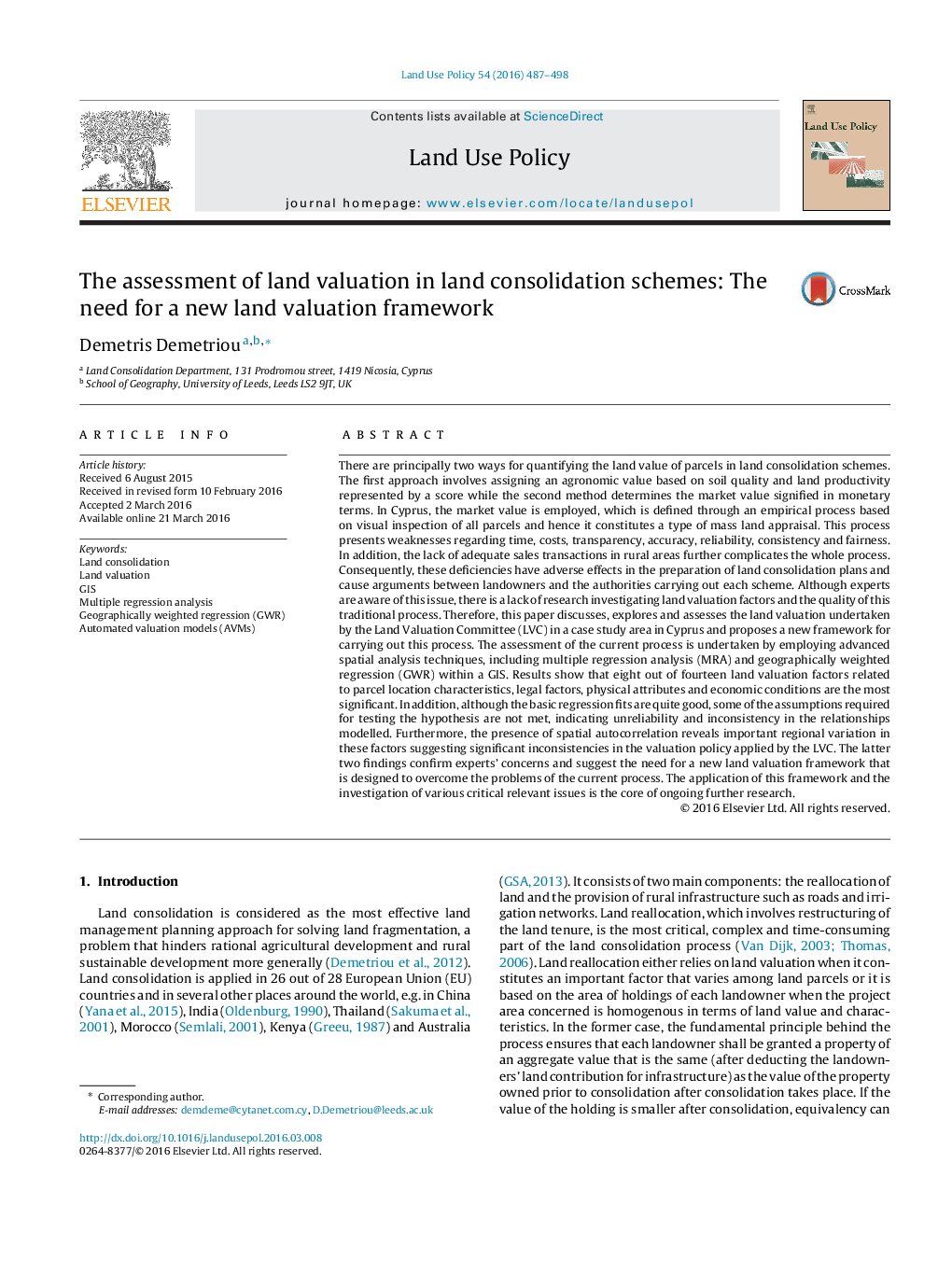| کد مقاله | کد نشریه | سال انتشار | مقاله انگلیسی | نسخه تمام متن |
|---|---|---|---|---|
| 6547388 | 160094 | 2016 | 12 صفحه PDF | دانلود رایگان |
عنوان انگلیسی مقاله ISI
The assessment of land valuation in land consolidation schemes: The need for a new land valuation framework
ترجمه فارسی عنوان
ارزیابی زمین در طرح های تثبیت زمین: نیاز به چارچوب ارزیابی زمین جدید
دانلود مقاله + سفارش ترجمه
دانلود مقاله ISI انگلیسی
رایگان برای ایرانیان
کلمات کلیدی
موضوعات مرتبط
علوم زیستی و بیوفناوری
علوم کشاورزی و بیولوژیک
جنگلداری
چکیده انگلیسی
There are principally two ways for quantifying the land value of parcels in land consolidation schemes. The first approach involves assigning an agronomic value based on soil quality and land productivity represented by a score while the second method determines the market value signified in monetary terms. In Cyprus, the market value is employed, which is defined through an empirical process based on visual inspection of all parcels and hence it constitutes a type of mass land appraisal. This process presents weaknesses regarding time, costs, transparency, accuracy, reliability, consistency and fairness. In addition, the lack of adequate sales transactions in rural areas further complicates the whole process. Consequently, these deficiencies have adverse effects in the preparation of land consolidation plans and cause arguments between landowners and the authorities carrying out each scheme. Although experts are aware of this issue, there is a lack of research investigating land valuation factors and the quality of this traditional process. Therefore, this paper discusses, explores and assesses the land valuation undertaken by the Land Valuation Committee (LVC) in a case study area in Cyprus and proposes a new framework for carrying out this process. The assessment of the current process is undertaken by employing advanced spatial analysis techniques, including multiple regression analysis (MRA) and geographically weighted regression (GWR) within a GIS. Results show that eight out of fourteen land valuation factors related to parcel location characteristics, legal factors, physical attributes and economic conditions are the most significant. In addition, although the basic regression fits are quite good, some of the assumptions required for testing the hypothesis are not met, indicating unreliability and inconsistency in the relationships modelled. Furthermore, the presence of spatial autocorrelation reveals important regional variation in these factors suggesting significant inconsistencies in the valuation policy applied by the LVC. The latter two findings confirm experts' concerns and suggest the need for a new land valuation framework that is designed to overcome the problems of the current process. The application of this framework and the investigation of various critical relevant issues is the core of ongoing further research.
ناشر
Database: Elsevier - ScienceDirect (ساینس دایرکت)
Journal: Land Use Policy - Volume 54, July 2016, Pages 487-498
Journal: Land Use Policy - Volume 54, July 2016, Pages 487-498
نویسندگان
Demetris Demetriou,
